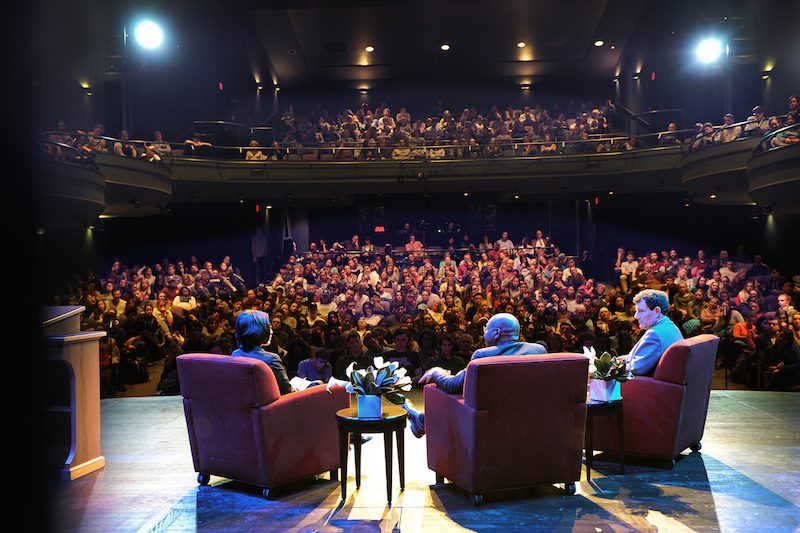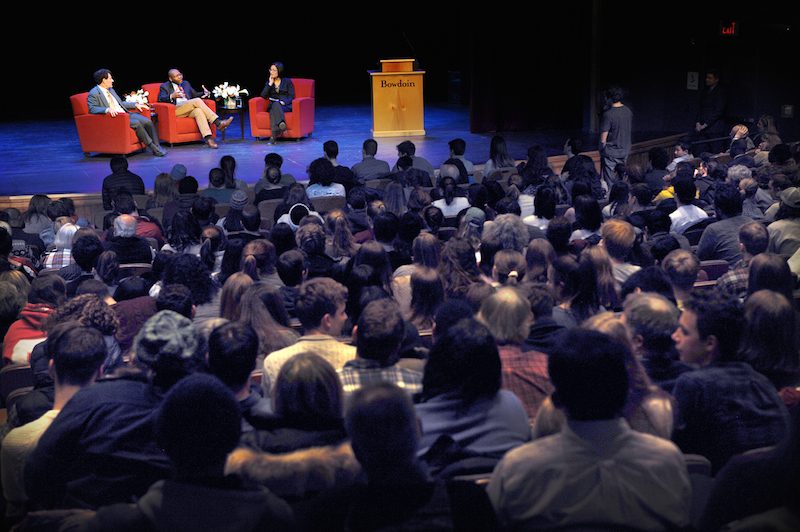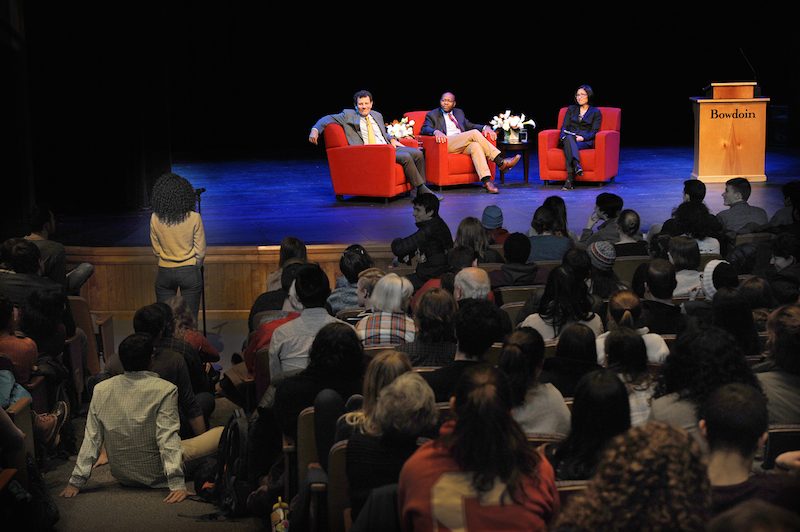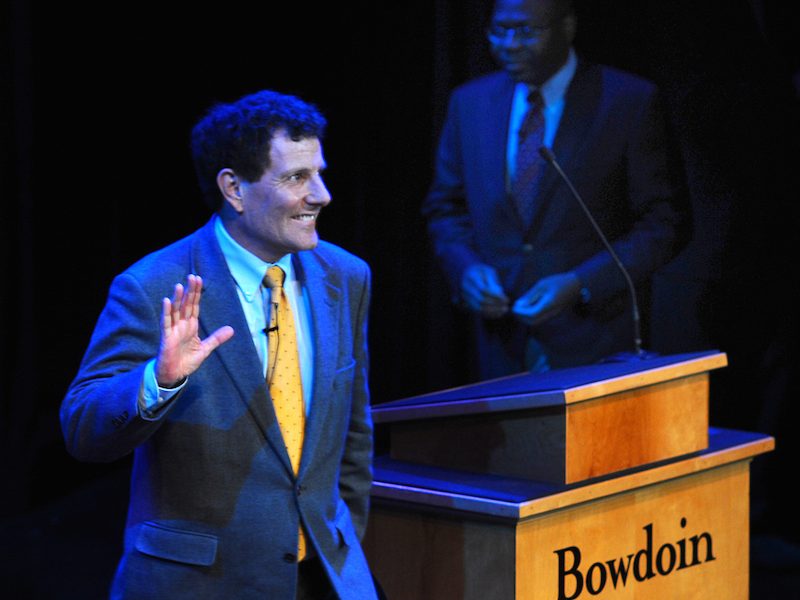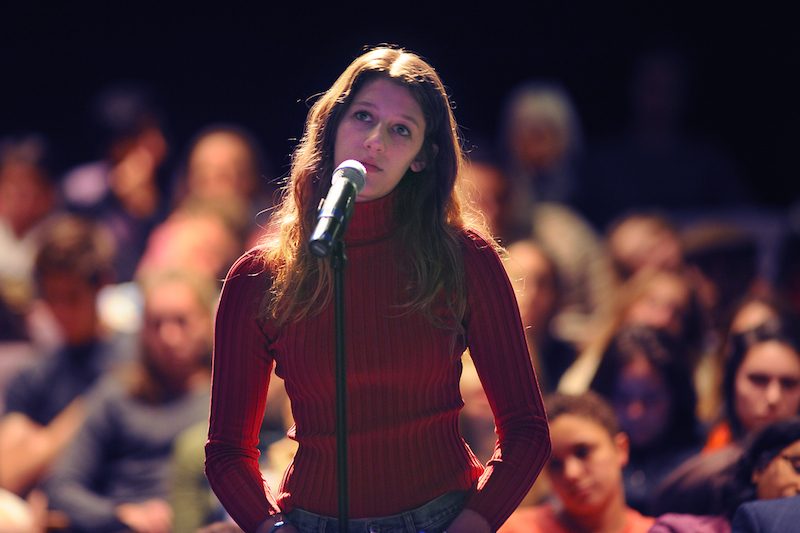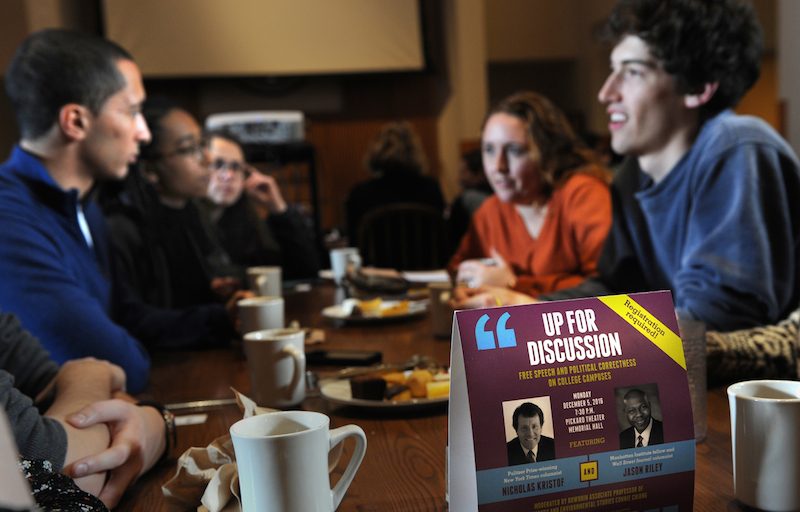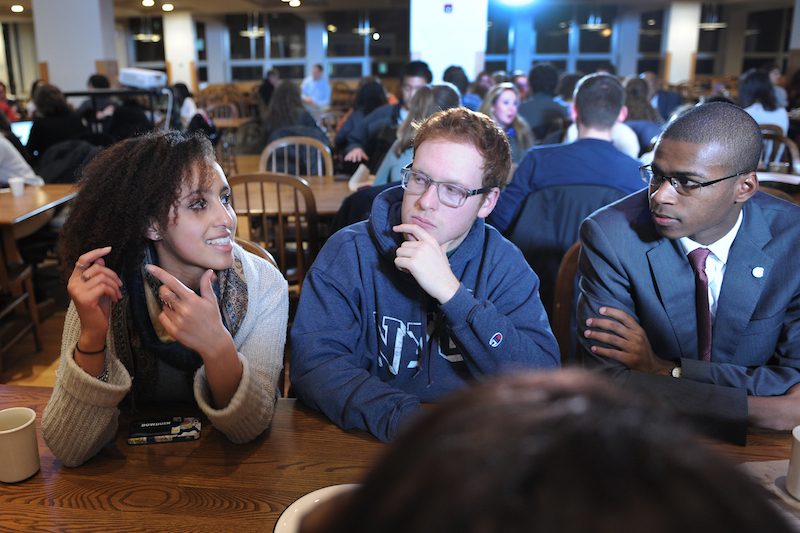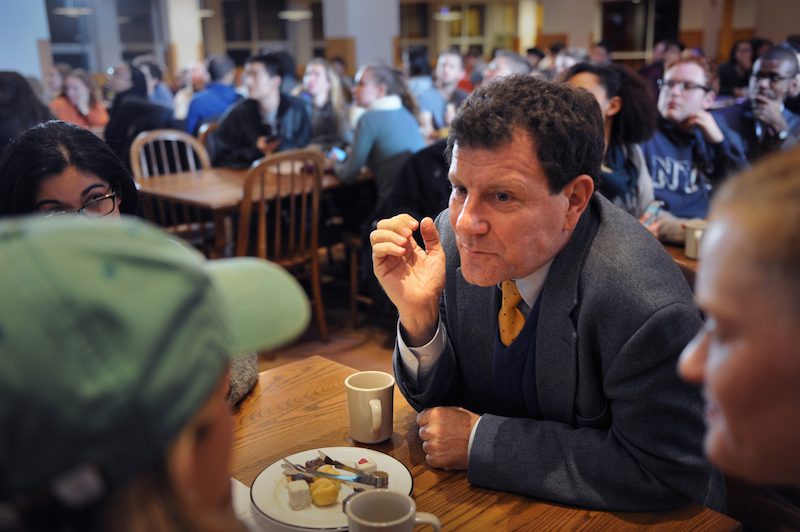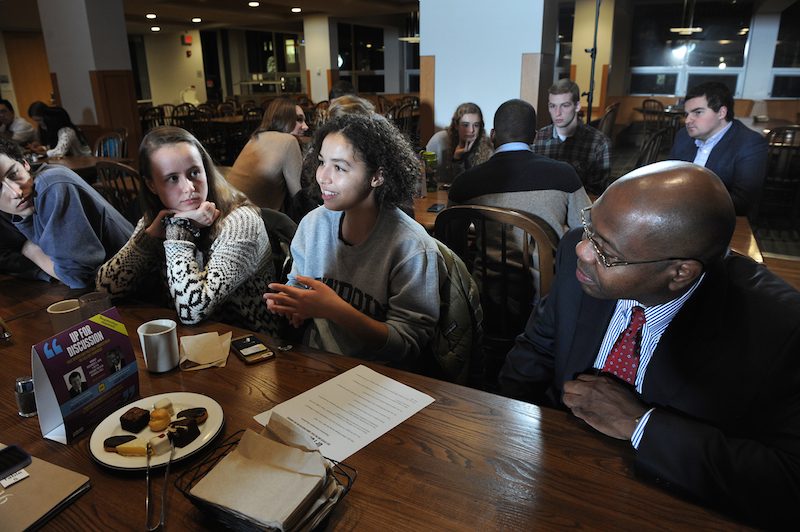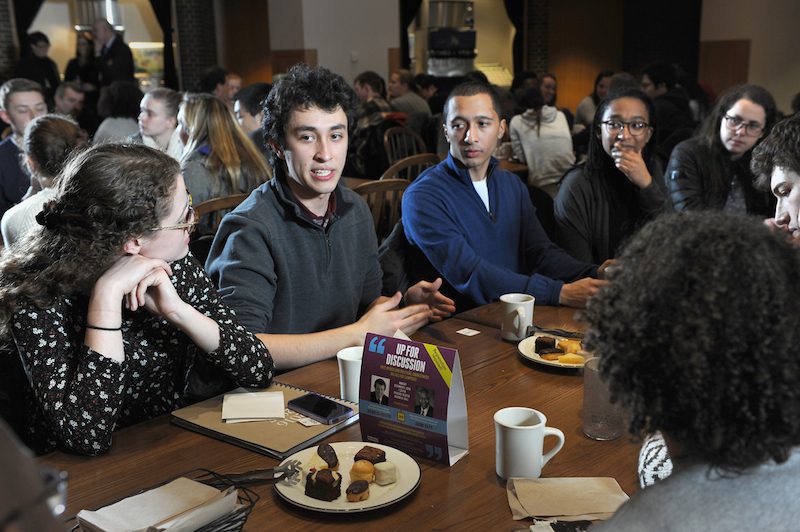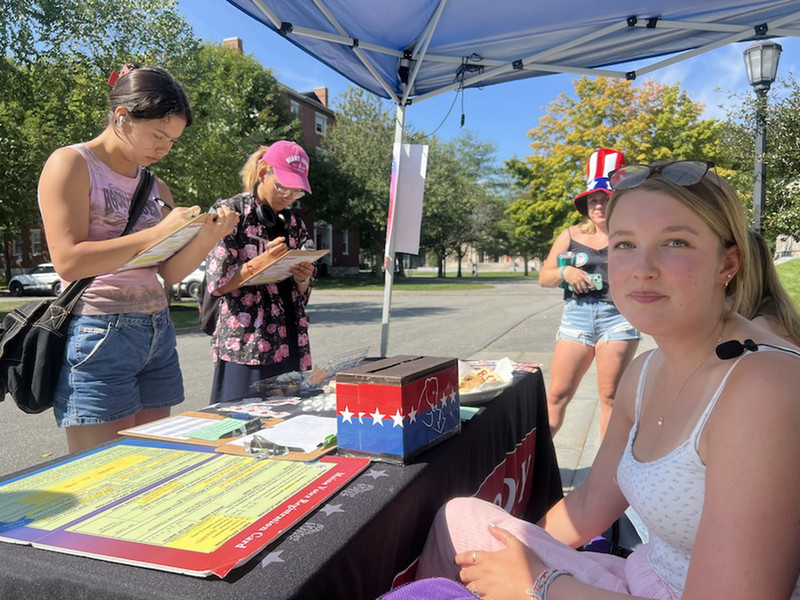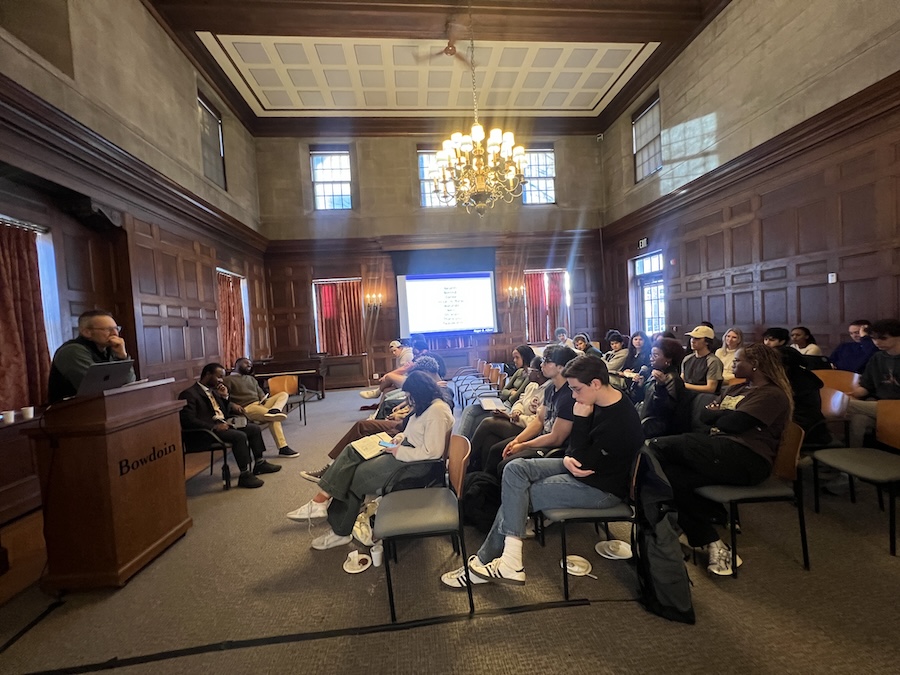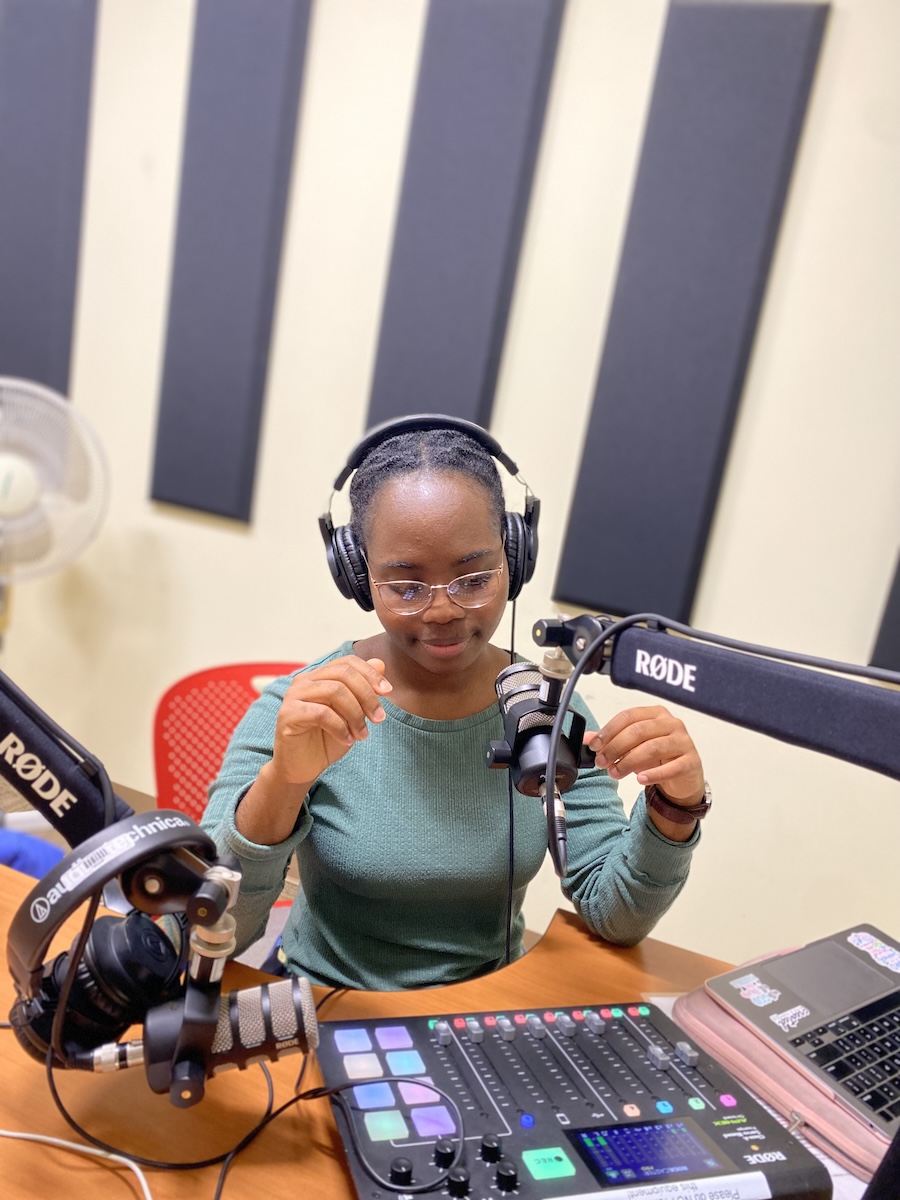Liberal and Conservative Columnists Find Common Ground in Campus Discussion
By Tom PorterThe issues of free speech and political correctness on campus were front and center on Monday evening, December 5, 2016, as two leading national newspaper columnists—an African American conservative and a white liberal—came to Bowdoin for a head-to-head debate and discussion. In his introduction, President Clayton S. Rose stressed the importance of exposing students to differing viewpoints, and opinions they may not all agree with. “This is how we change the world,” he said. About 600 members of the Bowdoin community packed Pickard Theater for the discussion. The long-anticipated event featured Pulitzer Prize-winning New York Timescolumnist Nicholas Kristof, and Jason Riley of The Wall Street Journal, who is also a fellow of the Manhattan Institute. It was moderated by Bowdoin College Associate Professor of History and Environmental Studies Connie Chiang.
Although the two guests represent different ends of the political spectrum—Kristof is a liberal and Riley a conservative—they agreed on several issues, most notably what they described as a “lack of intellectual diversity” on college campuses through the absence of conservative-leaning scholars and the consequently hostile atmosphere that non-liberal students sometimes find themselves in. Kristof suggested that colleges develop an affirmative action-type policy to ensure that a certain proportion of conservative-minded professors are employed, particularly in the social sciences, so that students are exposed to different perspectives. But, he warned, “there are no easy solutions here, no magic wands.” While it’s hard to address these issues, Kristof said, a good starting point would be to “make ourselves aware of the shortcomings and… acknowledge that… one kind of diversity we should embrace is thought diversity and ideological diversity.”
Riley said politics should be eliminated altogether in the classroom, and that students should be “taught how to think, not what to think.” One step in the right direction, he said, would be to ditch policies like “trigger warnings” and “safe spaces,” which have generated a lot of negative press coverage. Kristof, meanwhile, while not opposed to these kinds of policies, clearly did not think they were that important. “It seems to me that of the issues confronting the country, that’s about issue number 985.” He went on to say that emphasis on these kinds of concerns could actually distract students from the major social and economic issues facing the country, like poverty, healthcare, justice, and inequality.
Both guests were united in their criticism of what Riley called the “epidemic of disinvitations” at many colleges. He described how he himself was disinvited from speaking at a campus event because he’s a conservative. “There’s an intolerance on campus,” he said, which creates a “dangerous situation.” Kristof said students are the losers when potential speakers are disinvited from campus. If you don’t agree with the speaker’s views, he added, there’s a right way to behave, which is to maybe hold protests and have a discussion. “To end the discussion before it begins is a real problem.”
After the official event, about two hundred students were invited to join Riley and Kristof for dessert and further discussion at Thorne Hall. During this time, students were divided into smaller groups, and the two guests mingled with them to answer various questions. “It was more thought-provoking than I thought it was going to be,” said Diamond Walker ’17. She is from the Bronx in New York City and grew up in what she described as a socially liberal neighborhood. “I really want to understand what conservatism is about,“ she added. While she said she didn’t agree with everything that the speakers said, Walker said she was now more inclined to hear other, non-liberal, perspectives. But, she said, it is hard to find students with those perspectives because they seem reluctant to speak out.
Jack Lucy ’17 said what really excited him about the event was the discussions it sparked between students. “As I was leaving the theater, I heard a lot of students whose feathers were a little ruffled by some of the comments, and they were keen to come back here and engage in further discussion. And from what I’ve heard in my group, people have been really open and candid, which is great.” Lucy helped organize the event as part of a working group along with Rebkah Tesfamariam ’18, and several faculty and staff. “I think we heard many viewpoints tonight that we might not normally hear,” she said. “As future leaders, I think it’s important to have these conversations about diversity of thought, both inside and outside the classroom.”
The students gathered in Thorne were given the opportunity to cast their votes anonymously on a number of questions. Using technology set up by Bowdoin’s digital and social media team, they responded to questions posted on an overheard screen by texting on their cellphones. Among other things, students were asked what they thought the biggest obstacle was to free expression among their peers. It was a multiple choice question and 59 percent of respondents chose answer C: “fear of being judged racist or ignorant, or otherwise ‘labeled.’”
